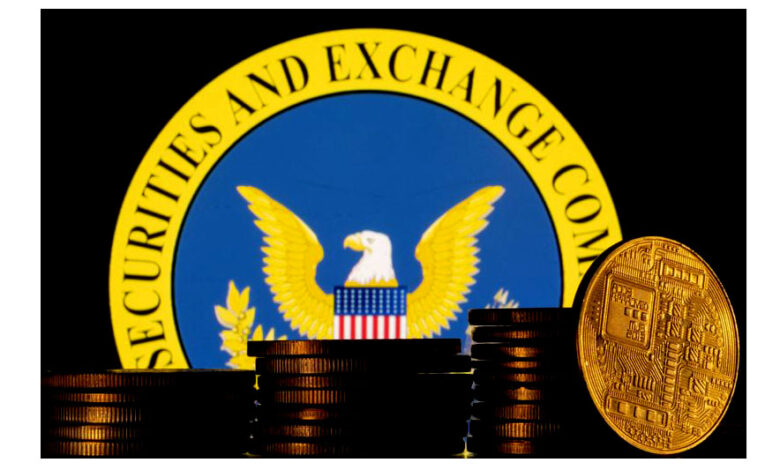Crypto Crackdown Escalates: Lawsuits Target Coinbase and Binance in the US

The United States has taken a firm stance on the regulation of cryptocurrencies, intensifying its crackdown with lawsuits targeting major players like Coinbase and Binance. The Securities and Exchange Commission (SEC), the country’s top securities regulator, filed a lawsuit against Coinbase, a leading cryptocurrency platform, accusing it of evading disclosure requirements and operating as a middleman on crypto transactions without protecting investors. This legal action follows another lawsuit filed by the SEC against Binance, the world’s largest cryptocurrency exchange, and its CEO, Changpeng Zhao, for alleged deceptive practices.
These lawsuits have far-reaching implications for the crypto market, as they signal the SEC’s intention to establish its jurisdiction over the industry. For years, cryptocurrencies have argued that tokens are not securities and should not fall under SEC regulations. However, if the SEC succeeds in either of these cases, it could drastically transform the crypto landscape.
According to Kevin O’Brien, a partner at Ford O’Brien Landy and a former federal prosecutor, these lawsuits represent the SEC’s increasingly aggressive campaign to bring cryptocurrencies under the purview of federal securities laws. While the cases against Coinbase and Binance differ in nature, they align in their direction, pointing towards the SEC’s determination to assert control over the crypto industry. It is worth noting that the SEC has not previously targeted such prominent players in the crypto space.
The SEC’s complaint against Coinbase, filed in a federal court in Manhattan, accuses the platform of trading at least 13 crypto assets that should have been registered as securities. Notable tokens such as Solana, Cardano, and Polygon are among the assets mentioned. In response to the lawsuit, Coinbase experienced a significant net customer outflow, estimated to be around $1.28 billion, as reported by data firm Nansen. This led to a decline in the share price of Coinbase Global Inc, the parent company, with a drop of 12.1% at the close of trading.
Despite these challenges, Coinbase’s general counsel, Paul Grewal, expressed the company’s commitment to compliance and stated that it would continue to operate as usual. However, Oanda senior market analyst Ed Moya believes that the SEC’s actions resemble a game of Whac-A-Mole with crypto exchanges. As regulators target exchanges offering tokens operating on blockchain protocols, it appears that this is just the beginning of a broader regulatory effort.
Interestingly, while the crackdown on the crypto market may have adverse effects on altcoins, it has paradoxically benefited the leading cryptocurrency, bitcoin. After initially plunging to a three-month low of $25,350 following the Binance lawsuit, bitcoin experienced a rebound of over $2,000, surpassing the previous day’s high. As Oanda’s Moya explains, the SEC’s actions have made it challenging for several altcoins, prompting some traders to return to bitcoin.
The regulatory scrutiny on brokers and exchanges arises from the fact that securities are subject to strict regulations, including detailed disclosure requirements. While the Securities Act of 1933 provides a definition of securities, experts often rely on two U.S. Supreme Court cases to determine if an investment product qualifies as a security. SEC Chair Gary Gensler has consistently maintained that tokens should be considered securities, and the SEC has gradually expanded its authority over the crypto market, initially focusing on token sales and interest-bearing crypto products. More recently, the SEC has turned its attention to unregistered crypto broker-dealers, exchange trading, and clearing activities.
Although some crypto companies operate as licensed alternative system trading systems, similar to trading platforms for listed securities, there is currently no fully-fledged crypto platform functioning as a stock exchange. This year, the SEC has also sued Beaxy Digital and Bittrex Global for failing to register as an exchange, clearinghouse, and broker.
While crypto companies dispute the SEC’s classification of tokens as securities and argue that the SEC’s rules lack clarity, they have responded to the regulatory crackdown by enhancing compliance measures, shelving certain products, and expanding operations beyond U.S. borders. Kristin Smith, CEO of the Blockchain Association trade group, rejected Chair Gensler’s attempts to oversee the industry, expressing confidence that the courts will eventually prove him wrong.
Coinbase, founded in 2012, boasts a substantial customer base of over 108 million users and held $130 billion in customer crypto assets and funds as of March. Transactions accounted for 75% of its $3.15 billion net revenue last year. The SEC’s lawsuit against Coinbase seeks civil fines, the recovery of illicit gains, and injunctive relief.
As for Binance, the SEC’s lawsuit accuses the exchange of various misconducts, including inflating trading volumes, diverting customer funds, commingling assets improperly, failing to restrict U.S. customers, and misleading customers about its controls. Binance vowed to vigorously defend itself against the lawsuit, characterizing it as a reflection of the SEC’s refusal to provide clarity to the crypto industry. Following the lawsuit, Binance and its U.S. affiliate witnessed customer withdrawals of approximately $790 million, according to Nansen.
In response to these recent regulatory actions, Joshua Chu, the group chief risk officer at blockchain technology firms XBE, Coinllectibles, and Marvion, emphasizes that the aim is to ensure compliance with securities laws and protect investors. Chu believes that these events will ultimately contribute to a more stable and trustworthy industry, which could attract greater institutional investors and mainstream adoption.





